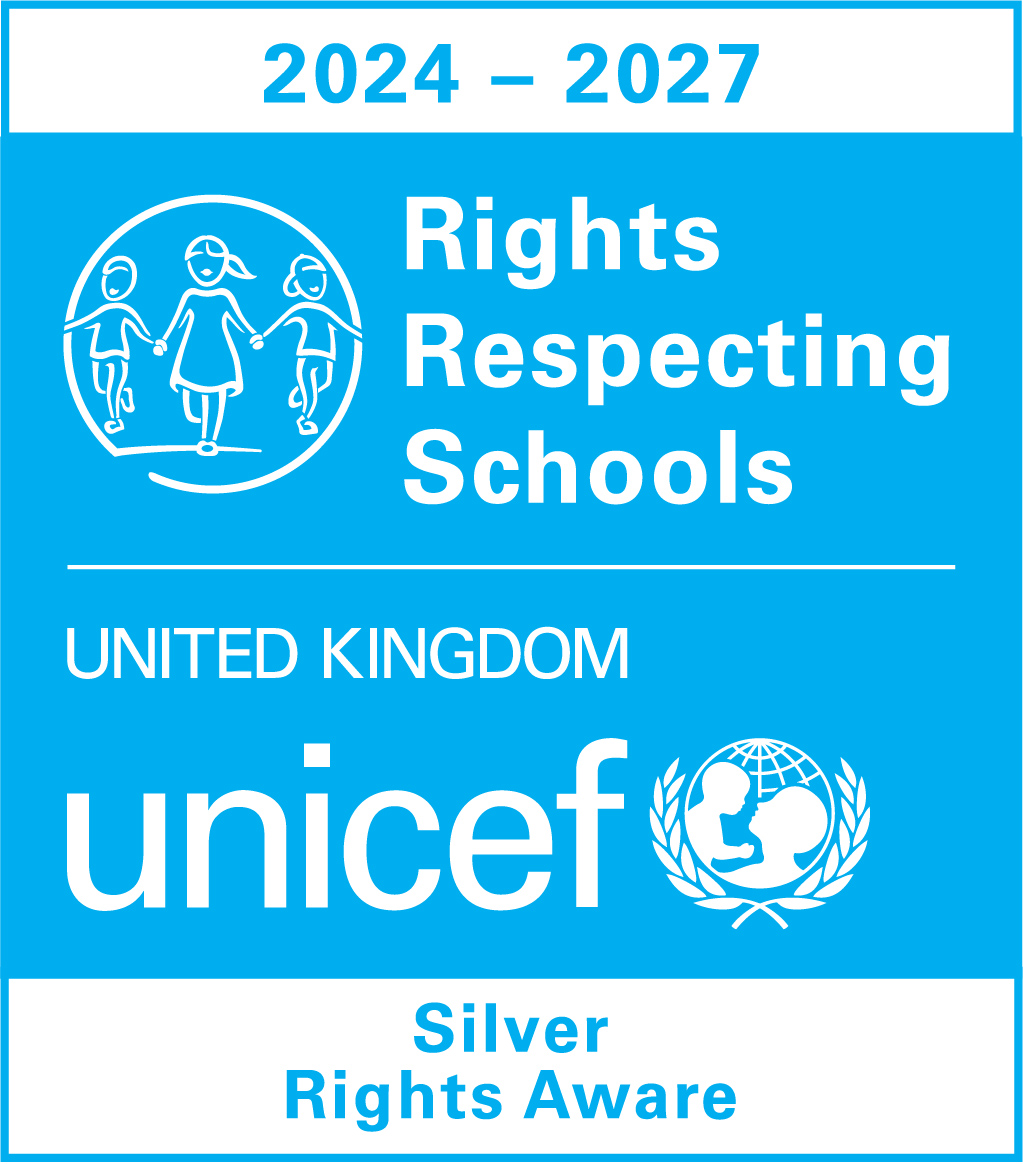What kind of a school is South Grove?
Intent
At South Grove we are committed to providing all children with the opportunities they need to succeed. All teachers are regarded as teachers for all pupils, regardless of special educational needs or disabilities. Every child’s happiness, achievements and attitude to learning is vital, and the inclusion of all children into our school community is the responsibility of everyone here.
Aims of the SEND policy
This SEN policy details how the school will endeavour to identify any Special Educational Needs as early as possible, that those needs are made known to all who are likely to teach the children with them, and that necessary provision is made to ensure those needs are met effectively.
South Grove has a diverse and vibrant community. As a team of staff we work very hard to ensure it is a strongly inclusive school with an ethos of valuing all children and ensuring that everyone feels supported in recognising and celebrating our differences.
Through the SEND policy we aim to:
Be inclusive - We are committed to inclusion of all individuals and therefore as an inclusive school community we are committed to promoting a learning and teaching environment that embeds the values of inclusive educational practices for all.
Promote equality – through access and opportunity within our school and the wider community we will challenge discrimination and harassment whenever they occur and ensure that education is accessible and relevant to all our learners.
Be respectful - respect each other and celebrate diversity and difference whilst providing equal access to an engaging curriculum, regardless of race, gender, class, disability, gender, sexual orientation, ethnic origins, cultures, faiths and capabilities.
Be creative - we are very much committed to supporting every child and their family throughout their learning journey. It is vital that all children are able to access an engaging curriculum and progress through their learning regardless of their ability or background.
Be ambitious - we see children as individuals who have the potential and right to succeed at school. We have the highest expectations for all our pupils.
Implementation
At our school we use the definition for SEN and for disability from the SEND Code of Practice (2014). This states:
SEN: A child or young person has special educational needs if he or she has a learning difficulty or disability which calls for special educational provision to be made for him or her. A learning difficulty or disability is a significantly greater difficulty in learning than the majority of others of the same age. Special educational provision means educational or training provision that is additional to, or different from, that made generally for others of the same age in a mainstream setting in England.
South Grove meets Special Educational Needs by recognising that quality first teaching and differentiation meet the needs of most children.
The objective of the Special Educational Needs Policy is to improve the learning and raise the achievement of pupils with Special Educational Needs.
The school seeks to develop an inclusive curriculum by:
- Setting suitable learning challenges for all pupils
- Responding to pupils’ diverse learning needs
- Overcoming potential barriers to learning and assessment for individuals and groups of pupils
Every pupil is seen as having individual needs, and the school strives to ensure that everyone feels equally valued within the school community.
Our policy aims to meet these difficulties by:
- Ensuring a clear person centred process for identifying, assessing, planning, providing and reviewing for SEND pupils.
- Involving pupils in their own target setting and review processes in a way that is meaningful to them.
- Enabling all staff to meet identified pupil needs
- Making the curriculum accessible to all pupils through recognising the need for differentiation and employing a range of teaching and learning styles
- Working closely with parents and outside agencies
- Catering mainly for SEN pupils in the mainstream class, but recognising that some pupils may require specialised teaching which can be better provided within an individual or small group situation away from the main classroom including the Resource Provision for Autistic Spectrum Disorder and Global Delay.
Assess- Plan- Do- Review
Once a potential Special Educational Need is identified, four types of action should be taken to put effective support in place. This is known as the graduated approach.
Assess
When progress continues to be less than expected, or the pupil appears to have barriers to any aspect of learning despite quality first and personalised teaching, the Class Teacher will complete an Initial Concern Form (see appendix) and discuss the pupil with the SENCo. The parents are consulted and their views recorded. Following observation and initial assessment, changes may be made to the teaching approach, strategies and progress will be noted and a decision made either to continue with successful differentiation and classroom strategies to move on to SEN Support, as the support required is different from, or additional to what is ordinarily offered by the school.
Plan
Where it is decided to provide a pupil with SEN Support, the parents and carers are notified and the child’s name is added to the Inclusion register to ensure thorough monitoring of their progress and analysis of how well the school is supporting children who require SEN support.
All teachers and support staff who work with the child are made aware of their needs, the support provided and any teaching strategies or approaches that are required. This will be recorded and shared using the Inclusion Register, individual Learning Plans and the school’s provision map.
Do
The class or subject teacher remain responsible for working with the child on a daily basis. Where the interventions involve group or one-to-one teaching away from the main class or subject teacher, they still retain responsibility for the pupil, working closely with any teaching assistants or specialist staff involved, to plan and assess the impact of interventions.
Review
The effectiveness of the support and the impact on the child’s progress will be reviewed with parents in line with the agreed date.
The class or subject teacher, working with the SENCo, will revise the support in light of the pupil’s progress and development, deciding on any changes to support and revised outcomes in consultation with the parent and pupil. This may lead to the removal of the pupil from SEN support, and the Inclusion register, where interventions have been successful.
Impact
Monitoring and evaluating SEN provision
The Inclusion register is updated each term by the SENCo, after discussion with class teachers and parents. This is made available to all teachers working with the children identified. The impact of SEN provision on the progress of children on the Inclusion register is measured through:
- Pupils’ work
- Feedback from teachers, pupils, parents and other professionals e.g. the school counsellor.
- Progress made against individual targets in Learning Plans
- Regular analysis of pupil tracking data and test results at Pupil progress meetings
- Progress against national data and based on their age and starting points.
- Intervention baselines and exit data.
- Individual progress reports from outside professionals (e.g SALT)
- Progress data gathered from tailored programmes e.g. Speech and Language.
Training and development
Continual professional development is provided to staff, based on the needs of the pupils of the Inclusion register at any time. This may include training from external professionals, such as the Educational Psychologist, or Speech and Language Therapist, the SENCo, or staff who have been on specific training days. Teachers and TAs are all regularly observed by members of the Senior Leadership Team, and are provided with feedback regarding the effective inclusion of children with SEND.
Our Inclusion Team
All of our children have the right to successfully access our educational setting and the curriculum we provide. With the support of our Inclusion Team we give additional support necessary that individual children require.
Our Inclusion Leader and SENCo and a support team of staff provide teachers, children and parents with the support that all children will need whilst at school, but just in very different and diverse ways.
All who work at the school make a strong contribution to the personal development and well-being of each child.
Our Inclusion Team is made up of:
Libby Johnson – Inclusion Leader and Special Educational Needs Coordinator
Lisa Mullins – Lead Teacher for the Autistic and Global Delay Resourced Provision
Special Educational Needs and Disability
Some of our children have needs or disabilities that affect their ability to learn. At South Grove we ensure that these pupils are given the right support and care, focussed on their specific needs. This may be in the form of an intervention or additional support either in the classroom, working individually, or in small groups outside of the classroom to meet their learning needs. Working specifically to the child’s needs, targets are set and planned for by the class teacher. We understand that a child’s individual needs can be temporary or long term. We work closely with children and their families with staff internally and other professionals externally, such as Speech and Language therapists, and Educational Psychologists to ensure that children with Special Educational needs thrive and succeed at school.
If you feel that your child may have a Special Educational Need please contact our Inclusion Leader and SENCo.
New to English
We regularly welcome many children to our school who have English as an Additional Language, with children arriving with little or no spoken English.
For those with English as an additional language structured learning programs through 1:1 sessions and small groups accelerate essential basic language learning to develop confidence in speaking and listening. All teaching and support staff are experienced in using a range of strategies including visual support material, to teach children where English is not their first language.
Higher Achievers, Gifted and Talented
At South Grove we ensure that we cater for all the varying abilities of children.
Gifted and talented learners are defined as those who have one or more abilities developed to a level significantly ahead of their year group, or with the potential to develop those abilities. Children can be identified as having gifted or talented status at any point of their learning journey through the school.
‘Gifted’ describes learners who have the ability to excel academically in one or more subjects such as English, mathematics or technology. ‘Talented’ learners are those who have the ability to excel in practical skills such as sport, leadership, creative or artistic performance.
Gifted or talented children are often much more than simply higher than average. At South Grove we support children to reach their full potential by providing enriching and significant challenge and support.
For pupil considered to be gifted and talented we provide more challenging lessons and other varied opportunities for them to take part in both internally and externally to the school.
The school works closely with a wide range of external partners to secure support and success for all of our children.
If you do feel your child may have a particular need please contact our Inclusion Leader and SENCo.
SEND Policies
- Accessibility Plan 2024-2025
- Accessibilty Policy 2023-2026
- EQUALITY AND DIVERSITY POLICY 2023-2026
- School SEN Information Report 2023
- Special Educational Needs Policy 24-25



